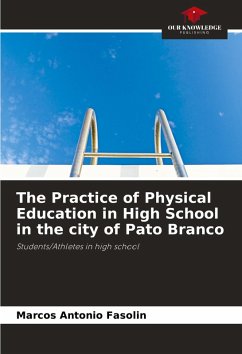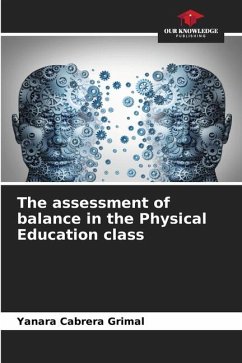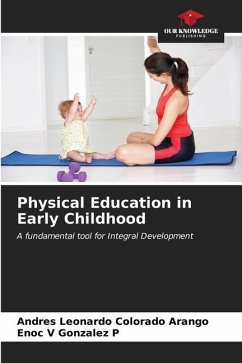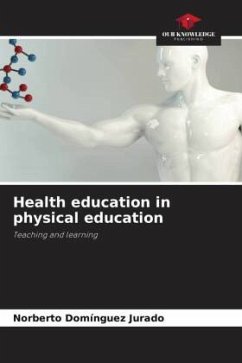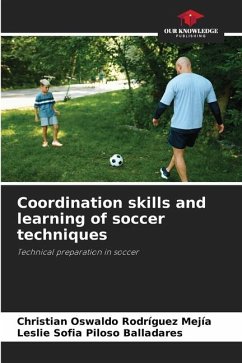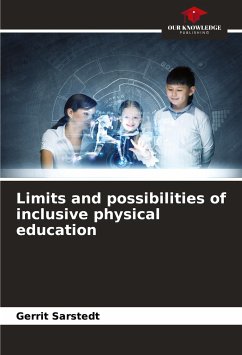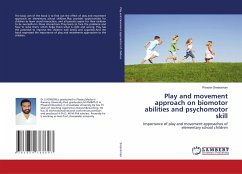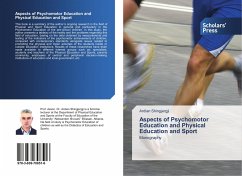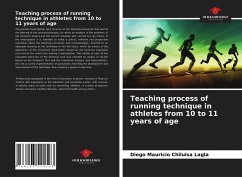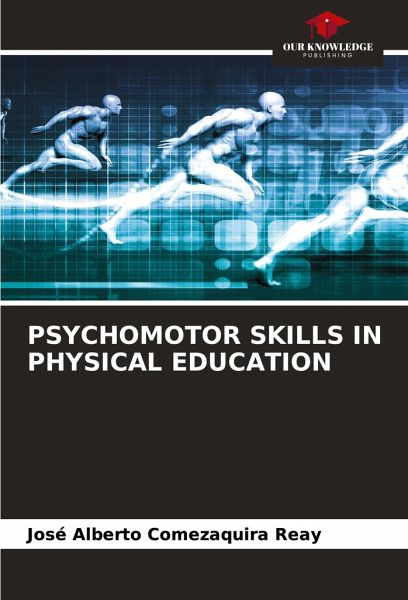
PSYCHOMOTOR SKILLS IN PHYSICAL EDUCATION
Versandkostenfrei!
Versandfertig in 6-10 Tagen
29,99 €
inkl. MwSt.

PAYBACK Punkte
15 °P sammeln!
The purpose of Physical Education is to form the autonomy and personal identity of the child, which will allow him/her to identify with his/her educational, cultural and social space. The teacher is the mediator of these meaningful experiences, where the child dialogues and interacts, first of all, with himself: his thinking, language and body; to then come into contact with nature as well as the surrounding community. Such learning experiences are achieved by fostering in the child an awareness of the body and movement, determining factors in the integral development of the child. The term "p...
The purpose of Physical Education is to form the autonomy and personal identity of the child, which will allow him/her to identify with his/her educational, cultural and social space. The teacher is the mediator of these meaningful experiences, where the child dialogues and interacts, first of all, with himself: his thinking, language and body; to then come into contact with nature as well as the surrounding community. Such learning experiences are achieved by fostering in the child an awareness of the body and movement, determining factors in the integral development of the child. The term "psychomotricity" is based on a global vision of the person, since it integrates cognitive, emotional, symbolic and sensorimotor actions, thus expressing the capacity to be and to act in a broad psychosocial context. Psychomotricity is therefore presented as a useful tool oriented to the integral development of the child; although it is present in movement education classes, it is not limited to it, being necessary in all areas of learning.



